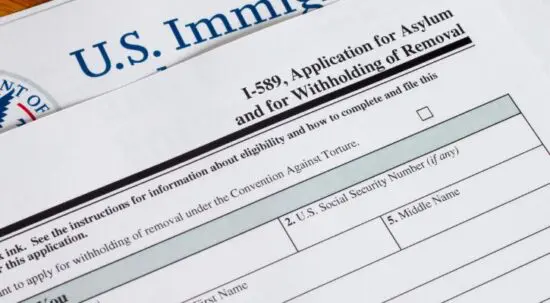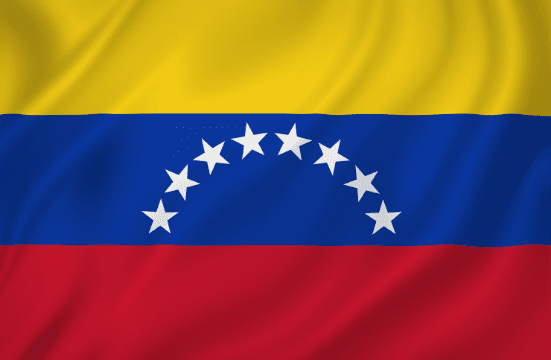تغییرات در فرایندهای CHNV
در 25 مارس 2025، وزارت امنیت داخلی به روند آزادی مشروط کوبایی ها، هائیتی ها، نیکاراگوئه ها و ونزوئلایی ها پایان داد. در 14 اپریل، یک دادگاه به طور موقت این طرح را متوقف کرد.
با این حال، در ۳۰ می ۲۰۲۵، دیوان عالی این تصمیم دادگاه را رد کرد و تصمیم گرفت به اداره ترامپ اجازه دهد تا از طریق فرایندهای CHNV به وضعیت آزادی مشروط برای کسانی که در اینجا هستند پایان دهد. اگر شما وضعیت آزادی مشروط داشتید، در ۳۰ می ۲۰۲۵ به پایان رسید.
USCIS is sending notices by email or through your USCIS online account to tell you that your CHNV parole has ended.
با وجود حکم دیوان عالی کشور، این موضوع هنوز هم در دادگاه های پایین تر مورد رقابت بیشتر قرار دارد. این به این معنی است که دادگاه ها هنوز در حال تصمیم گیری برای پایان دادن به برنامه آزادی مشروط CHNV قانونی بود. تصمیم دیوان عالی اجازه می دهد تا این برنامه به پایان برسد در حالی که دادگاه های پایین تر شنیدن استدلال از هر دو طرف و رسیدن به تصمیمات خود را. پس از پایان این پروسه ها، این پرونده احتمالاً دوباره از سوی دیوان عالی کشور برای تعیین نهایی در مورد قانونی بودن تصمیم برای پایان دادن به این برنامه شنیده خواهد شد.
این روند می تواند ماه ها یا حتی سال ها طول بکشد. در این مدت، آزادی مشروط فعلی CHNV وضعیت مهاجرت قانونی نخواهد داشت و در معرض اخراج قرار خواهد گرفت. به همین دلیل، آزادی مشروط CHNV باید اکنون عمل کند تا در صورت واجد شرایط بودن، به دنبال وضعیت حقوقی دیگری باشد.
این به چه معنی برای متقاضیان
اگر شما امیدوار بودند برای آمدن به ایالات متحده از طریق این برنامه :
- هیچ برنامه های کاربردی جدیدی پذیرفته نمی شوند.
- هر گونه برنامه های کاربردی در انتظار پردازش نخواهد شد.
- هیچ مجوز سفر جدید صادر خواهد شد.
این برای افرادی که آزادی مشروط دارند چه معنی می دهد
اگر شما در حال حاضر در ایالات متحده با آزادی مشروط از طریق این برنامه:
- آزادی مشروط شما به پایان رسید. شما دیگر مجاز به ماندن در ایالات متحده تحت این وضعیت.
- مجوز کار و سند سفر از طریق آزادی مشروط دیگر معتبر نیست.
- اگر شما یک راه قانونی دیگر برای ماندن در ایالات متحده، شما لازم نیست که به ترک کشور است.
- اگر شما در حال مبارزه با پرونده خود را در دادگاه و یا اگر شما یک درخواست پناهندگی در انتظار با USCIS، ترک ایالات متحده ممکن است مورد خود را پایان و آن را سخت تر به بازگشت قانونی است.
- همه چیز می تواند دوباره تغییر کند به عنوان این است که بررسی و رقابت در دادگاه. به روز بمانید.
- دولت ایالات متحده قصد دارد افرادی را که وضعیت آزادی مشروط خود را از دست داده اند اخراج کند.
- شما باید در حال حاضر عمل به دنبال یکی دیگر از وضعیت حقوقی اگر شما واجد شرایط.
چگونه برای پایان دادن به وضعیت آزادی مشروط خود را آماده
اگر شما در حال حاضر در ایالات متحده با آزادی مشروط هستند، ما به شدت توصیه می کنیم که شما اقدام بلافاصله:
- کمک حقوقی دریافت کنید. وکیل مهاجرت یا نماینده حقوقی می تواند به شما کمک کند گزینه های خود را بررسی کنید. بسیاری از سازمان ها و وکلا خدمات حقوقی رایگان یا کم هزینه ارائه می دهند.
- اقدام برای پناهندگیاگر شما واجد شرایط. این رایگان است به فایل.
- اگر شما در ایالات متحده برای زیر 2 سال بوده است، شما هنوز هم ممکن است به بیرون کردن حتی با درخواست پناهندگی در انتظار است.
- درخواست برای TPS هائیتی اگر شما واجد شرایط.
- بررسی کنید که آیا واجد شرایط قانون تعدیل کوبا هستید یا نه. اگر کوبایی هستید، ممکن است بتوانید پس از یک سال بودن در آمریکا درخواست Green Card کنید.
- بدانید حقوق خود را با یخ و چگونه برای ایجاد یک طرح ایمنی اگر شما در نهایت از دست دادن وضعیت قانونی خود را.
| As of May 28, 2025, a court ruling now requires the U.S. government to resume processing applications for people with humanitarian parole. This includes work permits, asylum, TPS, adjustment of status, and re-parole. Find updates with the Justice Action Center. |

بیاموزید که چگونه از وکلای معتبر مهاجرتی و نمایندگان قانونی کمک رایگان یا کم مصرف بیابید.
معلومات این صفحه از Welcome.US, DHS, و منابع دیگر معتبر بدست می آید. هدف ما ارائه معلوماتی است که به راحتی قابل درک باشد و به طور منظم بهروزرسانی شود. این معلومات مشاوره حقوقی نیست.



